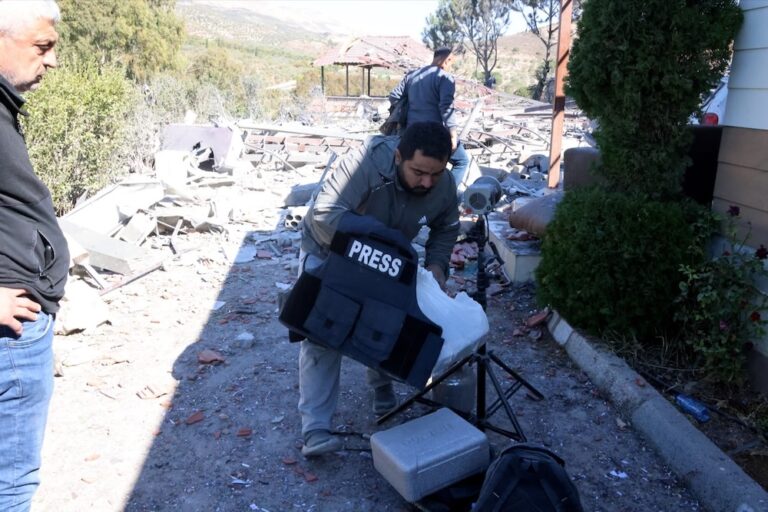IAPA voices concerns on the direct and subtle economic, legal, and judicial means used against the news media in a number of countries in the region that result in prior restraint and self-censorship, harming not only the news media itself, but most importantly, weakening the public’s right to receive information.
(IAPA/IFEX) – May 2, 2012, Miami – As we near the 70th anniversary of the founding of the Inter American Press Association this month, I’d also like to take this special date, May 3, World Press Freedom Day, as an opportunity to pay homage to the 24 journalists from Brazil, Colombia, Dominican Republic, Guatemala, Haiti, Honduras, Mexico and Peru that were killed over the last 12 months. Our thoughts are with their families and colleagues, especially because in the majority of these cases, justice has not yet been done.
We also extend our sympathy to all those traditional journalists, citizen journalists, bloggers and owners of media houses that have been attacked, threatened, or have had to seek refuge and exile in other countries after being harassed and hounded because of their work.
We are concerned at the direct and subtle – and in the case of Ecuador, not so subtle – economic, legal, and judicial means used against the news media in a number of countries in the region that result in prior restraint and self-censorship, harming not only the news media itself, but most importantly, weakening the public’s right to receive information.
At our recent meeting in Cádiz, Spain, where we celebrated the bicentennial of the first Spanish Constitution, we devoted much time to the defense of the work of the inter-American human rights system that a number of governments in the region have put under attack. From Cádiz, we urged all Organization of American States member governments to defend the system and in particular, the autonomy and work of the Office of the Special Rapporteur for Freedom of Expression, a body which since its creation in 1998 has contributed to guarding and strengthening citizens’ right to freedom of expression in each nation of the Americas.
Also in Cádiz we voiced the hope that the changes pursued by the government of Cuba, the longest standing dictatorship surviving in our hemisphere, would include respect for its citizens’ right to free speech; the cessation of persecution of independent journalists, bloggers, and dissidents; and an unlimited access to the Internet.
We maintain our deep concern that politicized practices by governments be combated with laws that establish technical and equitable criteria for the placement of official advertising, particularly in those nations where there is greater discrimination, such as in Argentina, Bolivia, Ecuador, El Salvador, Nicaragua and Venezuela.
On the legislative front, we applaud the efforts of certain governments, such as those of El Salvador and Mexico that have made defamation and libel no longer criminal offenses. At the same time, we protest the efforts of governments like those of the United States and Guatemala that seek to impose greater restrictions on classified information.
We regret that all countries have not yet enacted access to public information laws and the fact that where these laws do exist, they are not used effectively. We do acknowledge the government of the Dominican Republic for promoting an educational campaign that would include 700 training workshops to teach people how to use access to public information laws to foster a culture of transparency and accountability.
We regret the efforts of governments to enact press laws to limit privately-owned news media’s ability to function and to obstruct the denunciations resulting from investigative reporting, a tactic that would curtail one of the greatest counterbalances existing within democratic systems.
We revile governments’ expropriation, creation, or purchasing of news-media outlets and news press to be used as partisan organs of propaganda instead of as public service media.
On a final note, I would hope that on this 3rd of May we reflect on three important issues throughout the hemisphere – Canada, United States, Mexico, the Caribbean with all its languages, Central America and South America: The social consequences that result from the lack of respect for press freedom and free speech; the responsibility that journalists and the media have to defend and promote these freedoms; and the need for governments to extend access to the Internet and broadband to the most vulnerable sectors of society in their countries, as per commitments expressed during the recent Summit of the Americas.
Milton Coleman
Inter American Press Association President


